
We kindly inform you that, as long as the subject affiliation of our 300.000+ articles is in progress, you might get unsufficient or no results on your third level or second level search. In this case, please broaden your search criteria.


Jednym z zasadniczych celów działania gmin jest rozwój lokalny. Aby efektywnie zarządzać lokalną gospodarką, jednostkom samorządu terytorialnego przekazano pewien zakres samodzielności pozwalający podejmować określone działania dopasowane do potrzeb lokalnej społeczności. Kluczowym aspektem tego zabiegu było wyposażenie gmin w określone źródła dochodów oraz przyznanie im prawa do samodzielnego prowadzenia gospodarki finansowej, rozumiane jako samodzielność finansowa. Celem tego artykułu jest ocena stopnia zależności samodzielności finansowej jednostek samorządu terytorialnego i rozwoju lokalnego. Złożoność analizowanego zagadnienia wymagała zastosowania dwóch głównych metod badań. Pierwszą z nich było wyznaczenie wskaźnika syntetycznego w celu odrębnego pomiaru rozwoju lokalnego i samodzielności finansowej. Druga metoda polegała na wykorzystaniu wskaźnika korelacji Pearsona, aby ocenić zależność pomiędzy tymi zjawiskami.
More...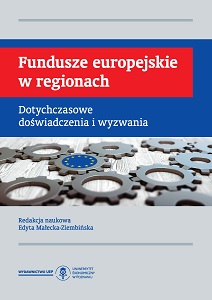
Perspektywa finansowa Unii Europejskiej na lata 2007–2013 w znaczący sposób uprzywilejowała regionalne gospodarki turystyczne krajów członkowskich w dostępie do środków UE. W zupełnie inny sposób potraktowano gospodarkę turystyczną w kolejnej perspektywie na lata 2014–2020, uniemożliwiając praktycznie bezpośredni dostęp do funduszy UE. Przedsiębiorcy turystyczni, lokalne samorządy oraz organizacje turystyczne mogą korzystać z alternatywnych form wsparcia przez środki, których pierwotnym celem nie jest finansowanie rozwoju gospodarki turystycznej, ale innych składowych gospodarki (np. infrastruktury, sportu i rekreacji, przemysłów kreatywnych), zwłaszcza związanych z ochroną środowiska naturalnego i dziedzictwa kulturowego. Celem opracowania jest przedstawienie i ocena polityki wsparcia regionalnej gospodarki turystycznej środkami z funduszy UE. Wskazano na zalecenia dotyczące ewolucji polityki turystycznej w kolejnej perspektywie finansowej UE. W częściach pracy przedstawiono zagadnienia: podstaw funkcjonowania gospodarki turystycznej, polityki turystycznej, oceny prowadzonej polityki turystycznej dzięki wykorzystaniu funduszy UE przeznaczanych na gospodarkę turystyczną w latach 2007–2013 i 2014–2020, kierunków kształtowania rozwoju polityki turystycznej przy wsparciu ze środków UE po 2020 roku.
More...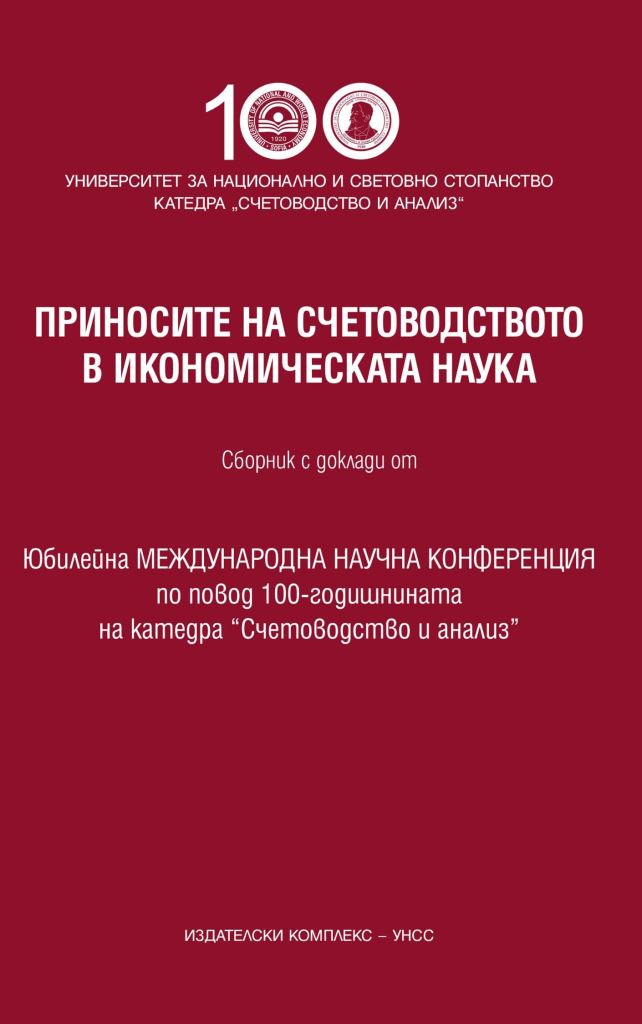
This publication studies two rate-of-return indicators relevant to enterprises with industrial principal activity: 1) labor resources-based rate of return, and 2) labor cost-based rate of return. In its nature, the first indicator describes the ultimate efficiency of use of one of the major production resources –manpower, and the second – the ultimate efficiency of costs incurred for the operation of manpower. With the help of the denominated factor modelling method, we outline and present two-factor model for analysis of labor resources-based rate of return and four-factor model for analysis of labor cost-based rate of return. The two-factor model enables the identification and evaluates the impact of two factors on the difference between the actual and reference level of labor resources-based rate of return: 1) changes of labor efficiency, and 2) changes of return on sales. The four-factor model gives the opportunity to identify and evaluate the impact of the following factors on the difference between the actual and reference level of labor cost-based rate of return:5) changes of labor efficiency;6) changes of average salary per staff member;7) changes of social security cost per staff member, and8) changes of return on sales.Analysis can be further deepened through detailed review of obtained results and the factors’ impact on the dynamics of the two rate-of-return indicators, in combination with the share method. With regard to the first indicator, it requires analysis of the impact of the factors determining labor efficiency and return on sales, and with regard to the second indicator – the factors determining labor efficiency, average salary per staff member, social security cost per staff member, and return on sales, respectively.
More...
In today’s world of information technologies (IT) and digital connectivity cyber risk is considered inevitable for all organizations and effective cybersecurity management is crucial for all. The aim of this paper is to outline the role of accountants in the process of cybersecurity management in modernorganizations. This paper argues that to benefit cybersecurity risk management, accounting needs to reform its higher education model. The first section describes the nature and the stages of cybersecurity management. The second section explores the competencies needed by the next generation ofcybersecurity professionals. The third section discusses the potential of the accounting profession to add value in the process of cybersecurity management as well as its implications for reforming accounting higher education. The paper concludes with a call for a balanced commitment to both students’ personal and professional development, which appears to be crucial for the future of accounting graduates, for the role of the profession in modern society as well as for the welfare of the society itself.
More...
The results and conclusions from the empirical satisfaction of students from the state exam in the specialty „Accounting“, Bachelor‘s degree, 2020 are presented in the report. The object of research is the regular state exam of the specialty „Accounting“, Bachelor‘s degree, held in July 2020. The subject of this report is focused on student satisfaction with the preparation and conduct of the state exam in „Accounting“. The aim of the research is through the opinions, recommendations and attitudes received by the students regarding the state exam to achieve the feedback from the students to the teachers and to assess the degree of compliance „de jure“ and „de facto“ of the taught material, its assimilation by students and the actual results achieved.
More...
The aim of the chapter is to present the essence, purpose and importance of accounting policy but above all to show the relationship of accounting policy with accounting theory and practice. The issues presented show the important role of accounting policy in the accounting system and its relationship with accounting theory and practice. It is also pointed out the legitimacy of unifying the documentation presenting the accounting policy adopted by a company in the form of an accounting policy report. The considerations carried out may become a premise for further research aimed at showing the mutual influence of the various elements of accounting, i.e. accounting policy, theory and practice. Due to the lack of exhaustive considerations of the issues addressed in the chapter, it contributes to reducing the cognitive gap existing in the Polish scientific literature.
More...
The subject of this chapter is the initial and balance sheet valuation of assets and liabilities in the context of accounting policy. The aim of the chapter is to present and discuss the principles of asset and liability valuation, as well as to outline the areas where the choice of valuation methods is possible within accounting policy. The research methods used in the publication included the analysis of legal acts and literature. The final result of the study has been presented using a deductive method. In the chapter, methods for valuing individual groups of assets and liabilities have been identified and described, and six main componentsof the accounting policy have been summarized, in which there should be a reference to valuation in accordance with the provisions of the Polish Accounting Act. The practical value of the publication is the prepared list of the minimum scope of the accounting policy regarding the valuation of assets and liabilities.
More...
The subject of consideration in this chapter is the material accounting policy tools that can be and are used in an economic crisis. In particular, consideration is given to the revaluation of assets, including impairment losses. The aim of the chapter is to present the possibility of creating the image of a company by means of asset impairment losses, which are material tools of accounting policy. The issues presented show the significance importance of accounting policy tools in the process of creating the value of assets and the financial result. On the basis of a case study, the possibilities of influencing the value of receivables and the profit by choosing the method of determining the value of write-downs in accordance with the intention of the decision-maker are indicated. The considerations carried out maybe come a premise for further research aimed at showing the mutual impact of the choice of accounting policy tools on the asset and financial position of a company and, consequently, on its image and perception by stakeholders.
More...
The chapter outlines units obligations for the protection of accounting information resources, which result from the regulations of the Accounting Law. For computer accounting it is essential to assure an efficient protection from illegal and uncontrolled modification as well as the introduction or the removal of accounting data. The purpose of the chapter is to present the rules for the protection of data, computer software and hardware. This chapter discusses the accounting policy for the protection of accounting information resources.
More...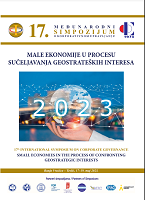
Stocks of natural resources are decreasing at a high rate worldwide, considering that the level of their exploitation is much higher than the rate of natural renewal. In order to respond to the substantial and complex challenges of climate change and the transition to a more sustainable economy, in 2021 the New York Stock Exchange (NYSE) and the Intrinsic Exchange Group (IEG) have introduced a new class of listed companies on the New York Stock Exchange whose activities are firmly linked to the benefits provided by nature (ecosystem services). Natural asset companies (NACs) enable owners to convert the value of nature into capital, using it to reinvest in natural resources in order to protect them. Natural asset companies represent a potentially major shift in the corporate sector globally, bringing together the interests of capital owners for profit and governments for sustainable development. Investors –interest in investing in these companies is very high, because the innovative class of assets on the New York Stock Exchange rejects the assumption that the preservation of natural resources is only a cost. The new category of companies also initiates a series of new challenges in the financial and accounting sector, related to the development of accounting solutions for integrating natural assets into financial statements. The main goal of our research is to examine the impact of the trend of sustainable business and new natural asset companies on the corporate and public sector in Bosnia and Herzegovina and what will be the role of natural assets in changes in business operations and financial reporting in the future
More...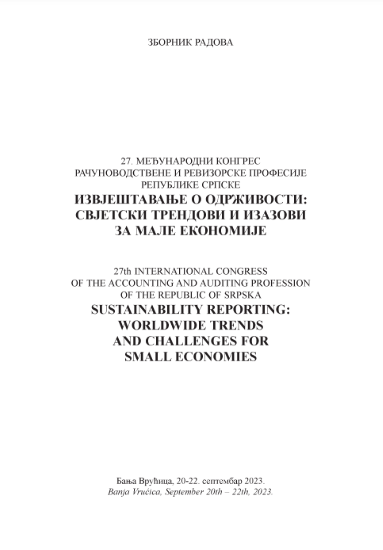
In considering the perspective of the second-term survival and progress of mankind, the central place belongs to the concept of sustainable survival and progress of mankind. Sustainable development implies the exploitation of resources, investment management, technological development and institutional changes that must be consistent with the future, and not only with the needs of current generations. Considering the effects of excessive consumption of resources and destruction of ecosystems, the green economy has emerged as a shift in thinking and is considered one of the possible successful solutions to improve economic growth, 'while reducing resource consumption and preventing ecosystem destruction. The paper will analyze the economic aspects of sustainable development, as -well as its advantages and disadvantages. The emphasis will be on the analysis of the institutional component of sustainable development and its importance and key role in connecting and supporting the achievement of other sustainable development goals will be pointed out. The representation of inclusive institutions in a society that promotes the rule of law enables the security of private property, an impartial legal system and the creation of inclusive markets.
More...
Financial information synthesized and presented in financial reports is, in theory, professional regulation and business practice, the “standard” reporting on achieved business and financial results, financial position, cash flows..., but also on business potential in the future, for the needs of numerous stakeholders. In modern business conditions determined by the processes of growing competition, globalization, internationalization, digitalization, green transition, sustainable and socially responsible business, or the so-called “new normalities”, the need for other non-financial or information on the sustainability of the reporting entity’s operations is gaining additional importance, while the theoretical, practical and regulatory aspects of non-financial and sustainability reporting are becoming an increasingly important issue and challenge for the accounting and financial profession. This paper aims to indicate the need, importance and essence, concepts, approaches, frameworks and regulation of non-financial and sustainability reporting; presents current regulations in this area, as well as the contribution of these concepts and approaches to quality and meeting the needs of stakeholders for non-financial information, and delivers available information on the practice of sustainability reporting and integrated reporting as part of overall non-financial reporting.
More...
The insurance industry in Bosnia and Herzegovina needs to be an active participant in modern sustainability reporting processes, which is a global trend and a challenge for the insurance industry, especially in small economies. The mission and vision of insurance is basically the production of material and spiritual security for natural and legal persons in a certain geographical area and in a certain time interval. Insurance, as a risk management institution, is a component of all human activities in their living environment. It has public, individual and social responsibility and should be adequately managed, managed and supervised. That is 'why it is an indispensable part of the general, special and individual sustainability reporting process. The existing scope and structure of insurance activities in Bosnia and Herzegovina needs a significant transformation in many segments of its work and general social presence in order to be in line with contemporary 'world trends. The strategy and operationalization of insurance in BiH should be based on scientific and professional foundations and significantly freed from non-productive and often harmful political influences. Numerous insurable risks are not actively managed, both in life and non-life insurance. There is obviously a lack of knowledge and awareness among responsible institutions and individuals (social responsibility). There is no adequate management and supervision. Politics dominates the profession in this important segment as well! Insurance mechanisms are not sufficiently used in environmental protection. The result of all this is the necessity of reporting on sustainability in the insurance industry in Bosnia and Herzegovina.
More...
Climate change poses a challenge to almost every aspect of the global economy and requires the engagement of experts from various fields to achieve carbon neutrality goals. Numerous studies conducted over the past decade indicate that companies are not taking serious steps to reduce their carbon footprint, and corporate management strategies often do not consider environmental issues. Therefore, providing quality carbon information is an inevitable trend for the survival and growth of companies. This requires companies to take responsibility for reducing carbon emissions, disclose important carbon information to stakeholders, and continually improve the quality of carbon disclosure on the path to profitability. Although many multinational companies have recently committed to achieving net-zero greenhouse gas emissions by 2050, it seems that there is currently a lack o f a unified methodology for measurement and reporting of these promises. Consequently, tensions arise in the field of carbon accounting between different professional communities concerning content control of C02 reports, standard development processes, and attempts to connect new forms of carbon accounting and reporting with existing corporate practices, which often do not align with sustainable development goals. Hence, accounting and reporting become powerful means of communication for declaring ambitions, monitoring gas emissions, and reporting on the current situation and progress of companies in the decarbonization process. Building on the above, the aim of this work is to explore the theoretical and methodological challenges of redesigning the standard information supply of the accounting information system in line with sustainable development goals, decarbonization and CO2 reporting and global regulatory requirements. Methodological procedures and techniques typical of social sciences will be applied, primarily using a descriptive-analytical approach. In addition to addressing the requirements for decarbonization of business and C02 reporting stemming from sustainable development goals, the European Green Deal, and GHG protocol, the significance of carbon accounting in these processes will be highlighted. Special attention will be paid to the positioning of carbon accounting in companies and the challenges faced by accountants in the business decarbonization process, as well as the impact of C02 reporting on the performance and competitiveness of companies, especially in developing countries like Serbia, considering the regulatory acts of the European Union in this area, 'which affect companies exporting to EU countries.
More...
Local Autonomy and Administrative Decentralization are fundamental principles in the state organization of power, in building the rule of law, in the development of democracy at all levels. Decentralization is an essential principle in the construction of Public Administration. Along with Local Autonomy and the Deconcentration of Public Services, this principle contributes to defining the way in which power and responsibility are distributed between the different levels of administration, with the aim of improving the efficiency and relevance of decisions made according to the needs and particularities of communities. Described as a transfer of administrative and financial powers from central Public Administration to local Public Administration, Decentralization is seen as a tool that facilitates more effective management of community and citizen needs. Putting the citizen at the centre of administrative reform strategies is a common point in governments’ efforts. The objective of making the Administrative System more efficient and closer to the citizen reflects a desire to improve the experience and satisfaction of citizens in the interaction with the Public Administration. Even if ambitious goals are included in governance programmes and reform strategies, their effective implementation requires administrative capacity and effective coordination. Sometimes implementation can be hampered by insufficient resources, lack of expertise, or lack of a coordinated approach between different entities and levels of Administration.
More...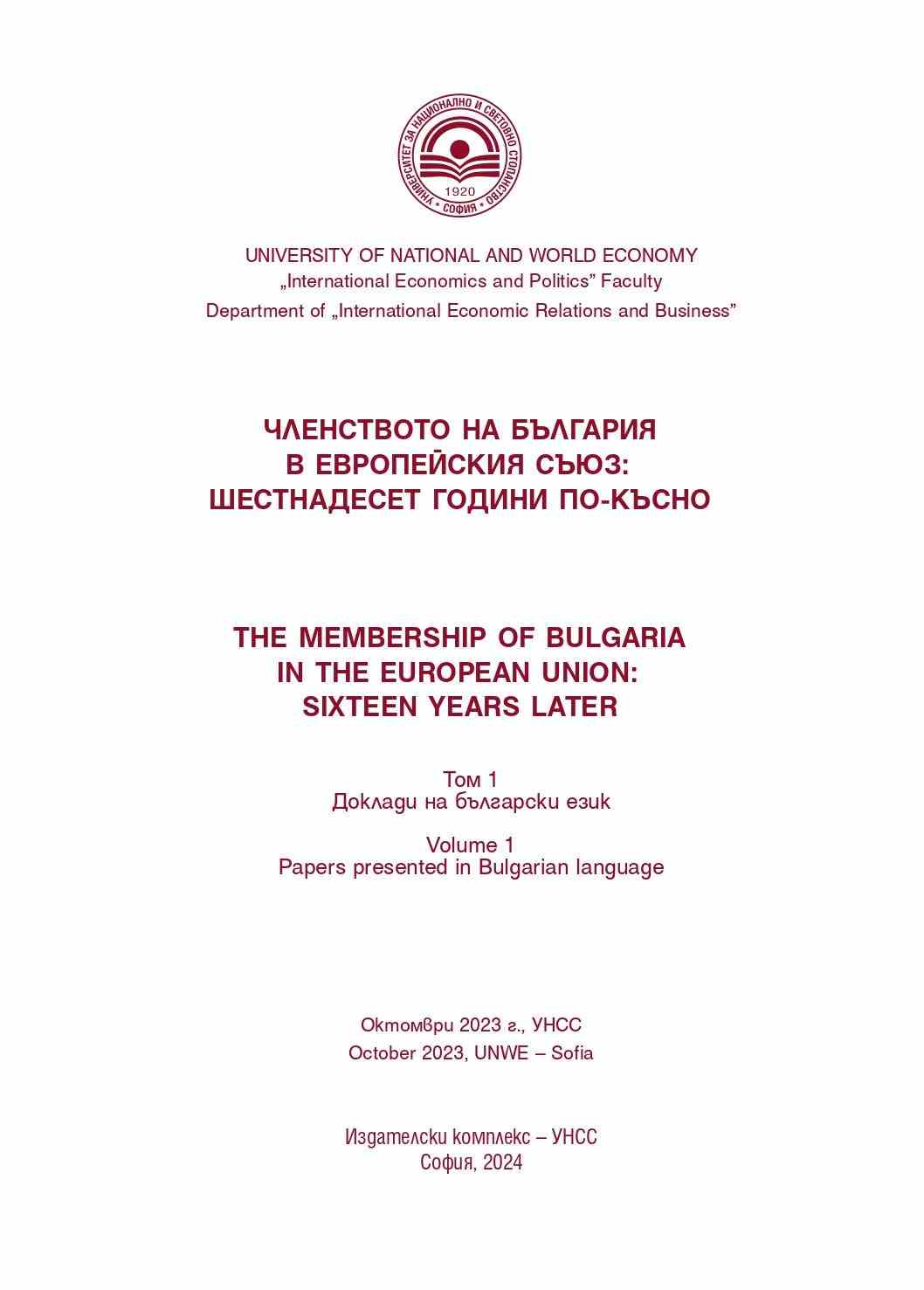
The aim of this report is to reveal the specifics of the pricing of the air navigation services in Europe. The main focus is on calculating the unit rates for the provision of air navigation services, or the so-called air navigation charges, which the airspace users (aviation operators) pay for the air traffic management. The report presents key features of the provision of air navigation services in Europe. A comparative analysis is made between the two pricing methods for air navigation services in Europe – the full cost recovery method and the determined costs method. The report also presents a review of the legislation in the field of air navigation service taxation. А special focus is placed on the traffic risk sharing mechanism and the cost risk sharing mechanism. The conclusion presents the trends in the regulation of pricing of the air navigation services, with regards to the legislative initiative for the Single European Sky (SES) to achieve more efficient air traffic management.
More...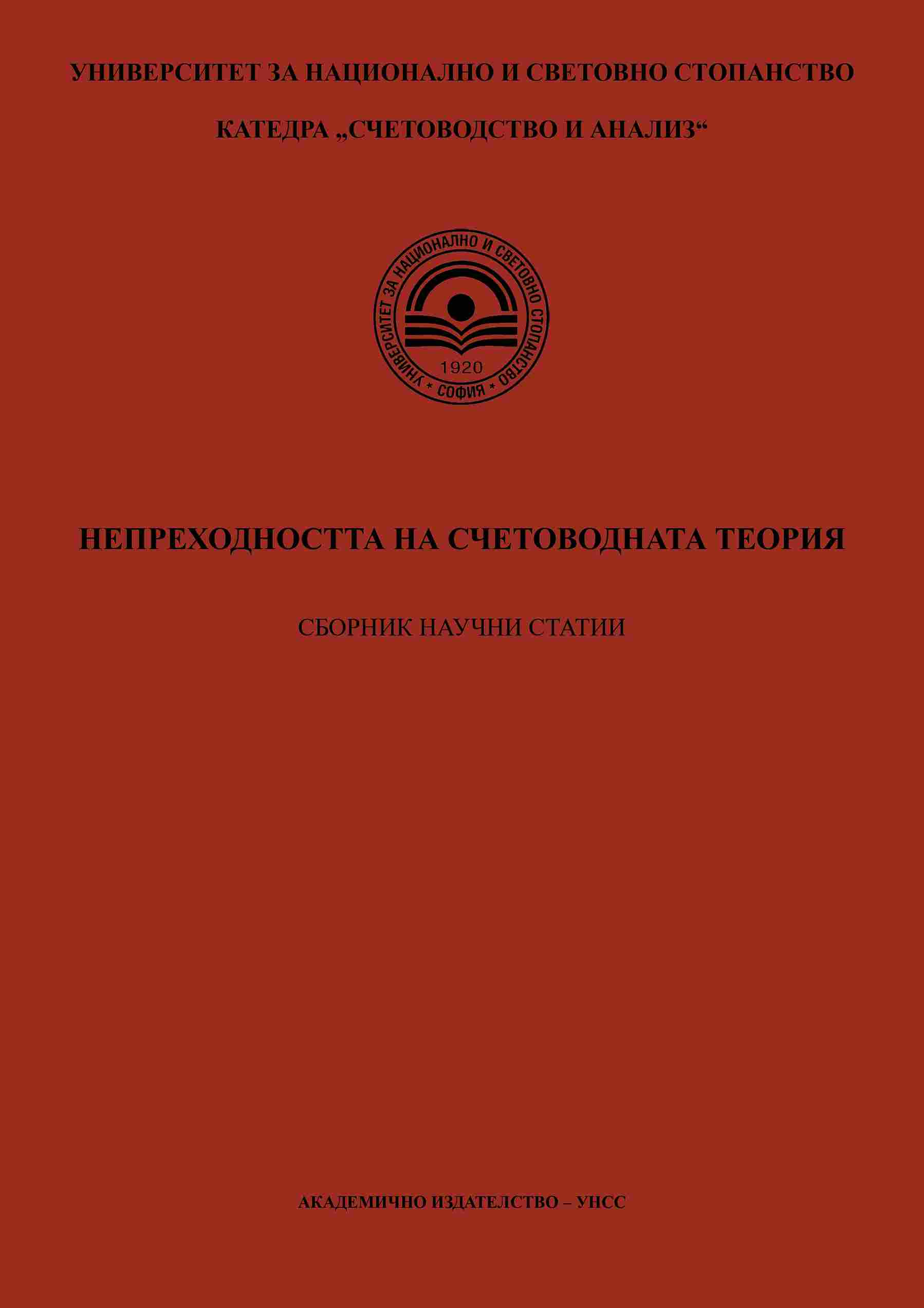
The development of accounting standardization and harmonization in the public sector is dependent on many dynamic and interrelated processes, including economic, political, environmental, etc. The reached level of the Institutional theory reveals how the government makes the decision to perceive common accounting practices in order to obtain institutional legitimacy. Although, these accounting models differ from contemporary accounting practice in the global aspect. The question is how will adequacy public sector accounting harmonization be reached in the absence of the European conceptual framework for financial reporting. The purpose of the study is to analyze theoretically existing public sector accounting practices in the context of the development of the Institutional theory.
More...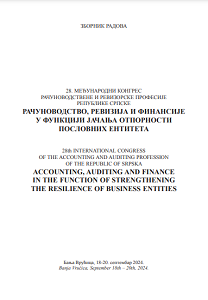
In order to preserve the environment and social issues, there is a growing concern of stakeholders, and therefore they put pressure on companies to improve the quality of reporting on sustainable development and to increase their responsibility towards the environment. In any case, improving relations with stakeholders and significantly improving corporate reputation can contribute to adequate evaluation and disclosure of information about performance in the field of environmental protection and improving relations with society as a whole. The aforementioned has initiated many national governments to increase the scope of legal requirements for sustainability reporting. The traditional practice of classical (conventional) accounting is facing challenges brought about by the problems of sustainable development. There is a view on the part of certain authorities that the existing practice of classic (conventional) accounting should undergo serious changes in order to comply with the concept of sustainable development. On the other hand, there are justified opinions that classical (conventional) accounting cannot radically change its established rules for preparing financial statements, and there are justified opinions that classical (conventional) accounting cannot be expected to service all the needs of reporting on sustainable development. Therefore, there is a need to form a subvariant of classical accounting, called sustainability accounting
More...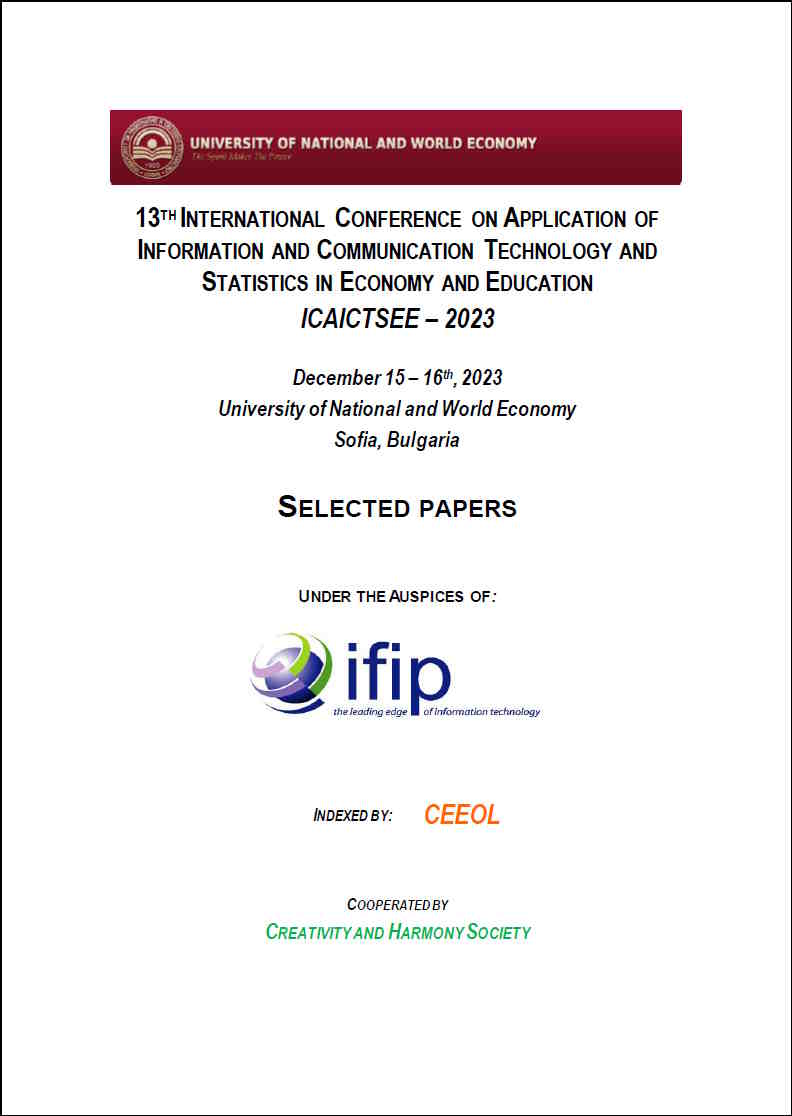
This paper presents Pentaho Business Analytics capabilities for unstructured data and visualizations. It aims to provide what types of data integration are possible, the connectivity with Big Data platforms, as well as transformation and cleansing data, before using it for visualization, text analytics and ad-hoc analysis. Working with unstructured data is extremely difficult and for the user to be able to make conclusions after, and because of that when working with this type of data, there should be processes strictly followed.The current research examines the nature of financial analysis of real estate companies, including real estate agencies, facility companies, and other similar businesses. A special emphasis is placed on the DuPont system and the possibilities of building analysis systems based on this model, in compliance with the legislation in the field of accounting in Bulgaria. The proposed analysis systems include an example of an approval conducted concerning one of the largest real estate agencies in the country – Address Real Estate Ltd. In addition, we pose the question of the contribution of the software in the implementation of the financial analysis. The use of software greatly assists financial analysts, i.e. its use saves time and effort in analysing relevant information. The methodology developed provides valuable information both to specialists dealing with real estates as well as to teachers and students engaged in the problems of financial analysis of real estate companies. The work presented offers practical tools and approaches that can be integrated in real business conditions to improve the financial management and analysis of companies in the real estate sector.
More...